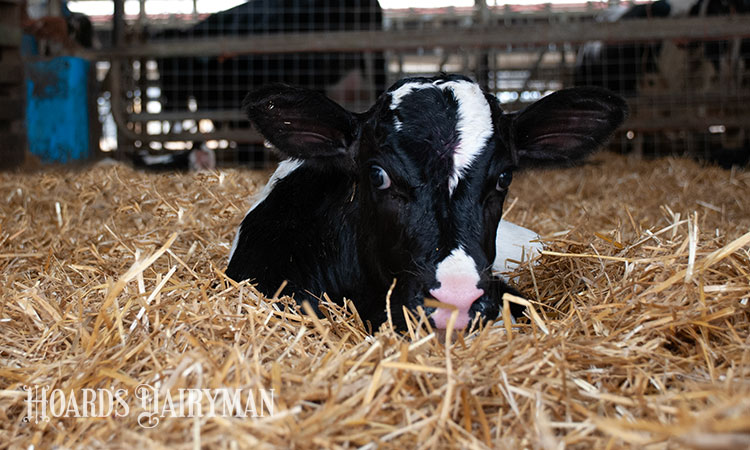
Early onset muscle weakness was first reported earlier this year and referred to as calf recumbency because it impacts a calf’s ability to stand up. Typically presented in the first two months of life, the condition varies from animal to animal. Affected calves may be unable to stand from birth, they may not be able to stand after a few days, or they may not be able to stand initially but then appear to recover. Afflicted animals may exhibit additional problems that stem from the inability to stand, such as pneumonia or general unthriftiness.
Genetic testing has been available to farmers who suspect a calf may be affected and provides the best way for breeders to understand which animals in their herd could be carriers of this recessive condition. The Council on Dairy Cattle Breeding (CDCB) worked with this information throughout the fall to inform the haplotype call. It was a process similar to what was used to develop the haplotype call for cholesterol deficiency, they said.
Results of the haplotype, which will be abbreviated HMW, will identify animals as a noncarrier (0), carrier (1), homozygous (2), probable carrier (3), or probable homozygous (4). However, these statuses will not be displayed on official Holstein pedigrees as Holstein Association USA has not declared the disorder an officially recognized undesirable genetic condition. So far, the condition has only been reported in the Holstein breed.
There are approximately 7 million Holstein genotypes in the national cooperator database managed by CDCB, and the organization says it anticipates that a “significant number” of those animals will receive a status of 3 or 4 for HMW. These codes include the word “probable” because available pedigree information does not provide the ability to confirm the presence of the mutated haplotype.
The mutation appears to cause a problem for one gene to form calcium channels properly. Without enough calcium, a muscle cannot contract to allow an animal to stand up.
A status of 1, 2, 3, or 4 for HMW should not automatically equate to removal from the herd, said CDCB, Holstein Association USA, and the National Association of Animal Breeders. Instead, this is a new factor to be managed by avoiding homozygous matings and making selection decisions. For more information about the condition, read “Muscle weakness differs from other recessives.”
This condition was discovered because of farmer reporting. Any breeder who suspects that a calf may be afflicted with early onset muscle weakness is encouraged to complete Holstein Association USA’s Abnormality Report Form and email it to labresults@holstein.com. They may also contact the association’s Genetic Services department by calling 800-952-5200.








